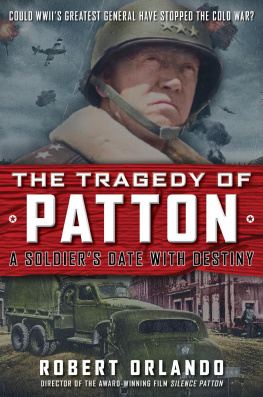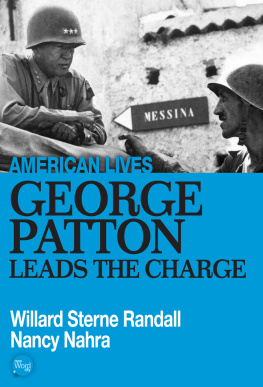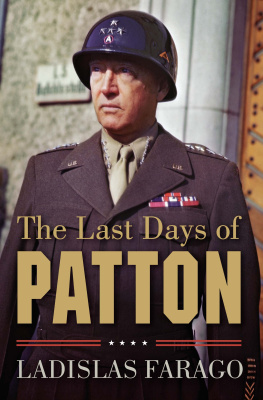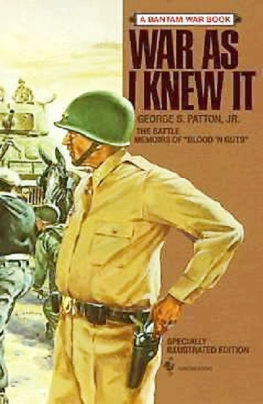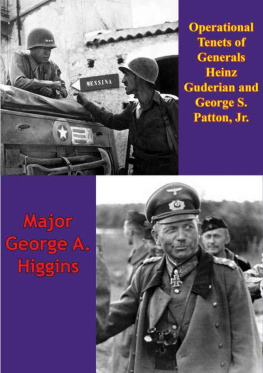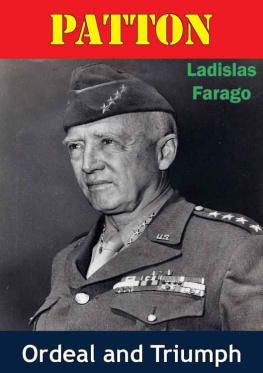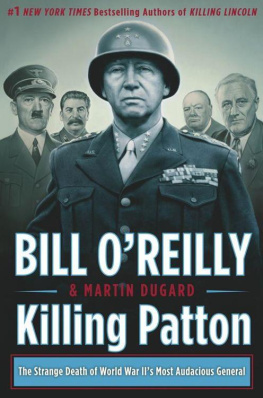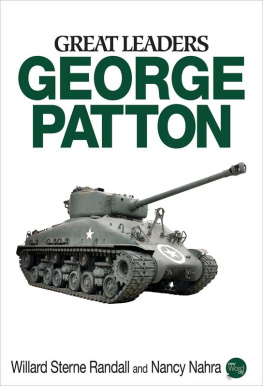Robert Orlando - The Tragedy of Patton a Soldiers Date With Destiny: Could World War IIs Greatest General Have Stopped the Cold War?
Here you can read online Robert Orlando - The Tragedy of Patton a Soldiers Date With Destiny: Could World War IIs Greatest General Have Stopped the Cold War? full text of the book (entire story) in english for free. Download pdf and epub, get meaning, cover and reviews about this ebook. year: 2021, publisher: Humanix Books, genre: Science. Description of the work, (preface) as well as reviews are available. Best literature library LitArk.com created for fans of good reading and offers a wide selection of genres:
Romance novel
Science fiction
Adventure
Detective
Science
History
Home and family
Prose
Art
Politics
Computer
Non-fiction
Religion
Business
Children
Humor
Choose a favorite category and find really read worthwhile books. Enjoy immersion in the world of imagination, feel the emotions of the characters or learn something new for yourself, make an fascinating discovery.
- Book:The Tragedy of Patton a Soldiers Date With Destiny: Could World War IIs Greatest General Have Stopped the Cold War?
- Author:
- Publisher:Humanix Books
- Genre:
- Year:2021
- Rating:5 / 5
- Favourites:Add to favourites
- Your mark:
The Tragedy of Patton a Soldiers Date With Destiny: Could World War IIs Greatest General Have Stopped the Cold War?: summary, description and annotation
We offer to read an annotation, description, summary or preface (depends on what the author of the book "The Tragedy of Patton a Soldiers Date With Destiny: Could World War IIs Greatest General Have Stopped the Cold War?" wrote himself). If you haven't found the necessary information about the book — write in the comments, we will try to find it.
BETTER TO FIGHT FOR SOMETHING THAN LIVE FOR NOTHING. GENERAL GEORGE S. PATTON
It is 75 years since the end of WW II and the strange, mysterious death of General George S. Patton, but as in life, Patton sets off a storm of controversy.
THE TRAGEDY OF PATTON: A Soldiers Date With Destiny asks the question: Why was General Patton silenced during his service in World War II? Prevented from receiving needed supplies that would have ended the war nine months earlier, freed the death camps, and prevented Russian invasion of the Eastern Bloc, and Stalins murderous rampage. Why was he fired as General of the Third Army and relegated to a governorship of post-war Bavaria? Who were his enemies? Was he a threat to Eisenhower, Montgomery, and Bradley? And is it possible as some say that the Generals freakish collision with an Army truck, on the day before his departure for US, was not really an accident? Or was Patton not only dismissed by his peers, but the victim of an assassins bullet at their behest? Was his personal silence necessary?
Early in his life, Patton was a markedly insecure man, petrified by the notion of failing to live up to the standards of his pedigree. Patton was haunted by several sets of ghosts throughout his lifetime, including his martial ancestors, the great men of history and literature, and figures from his early years, especially relatives. As far as Patton saw it, his chief duty in life was to live up to if not surpass the military precedent set by his forebears. George Patton was driven by an innate sense of duty, both to his familys great military tradition and to his country. He was fixated on the notion of reaching the status of a military legend, and driven by outdated notions about honor, drawing from the Greek concept of arte and medieval notions of chivalry, both of which had received a heightened level of attention in the 1800s. As a general, Patton measured himself against Alexander, Caesar and Hannibal of antiquity. Combat was, for Patton, the means by which to attain glory and secure his eternal legacy.
Patton was simultaneously brilliant and deeply flawed. He lived an exciting, compulsive life, never standing still for a moment, always searching, seeking, probing. He was daring and noble on occasion, like the Greek and Roman military legends he revered. At other times he was petulant and cruel, lacking in the diplomatic grace and tact that defined many of his contemporaries, a real son-of-a-bitch (i.e. Our Blood His Guts: They were mocking him). Patton was the kind of guy the Allies needed to get the dirty work done on the ground, but also the guy they wanted to get rid of or silence when the fighting was over. This is hardly surprising, given how outspoken Patton was about the conduct of the war especially its end and aftermath and his willingness to identify the Soviet Union as the next great threat to American democracy and world peace.
General George S. Patton was Americas antihero of the Second World War. Orlando explores whether a man of such a flawed character could have been right about his claim that because the Allied troops, some within 200 miles of Berlin, or just outside Prague, were held back from capturing the capitals to let Soviet troops move in, the Cold War was inevitable. Patton said it loudly and often enough that he was relieved of command and silenced. Patton had vowed to take the gag off after the war and tell the intimate truth and inner workings about controversial decisions and questionable politics that had cost the lives of his men. Was General Patton volatile, bombastic,...
Robert Orlando: author's other books
Who wrote The Tragedy of Patton a Soldiers Date With Destiny: Could World War IIs Greatest General Have Stopped the Cold War?? Find out the surname, the name of the author of the book and a list of all author's works by series.

